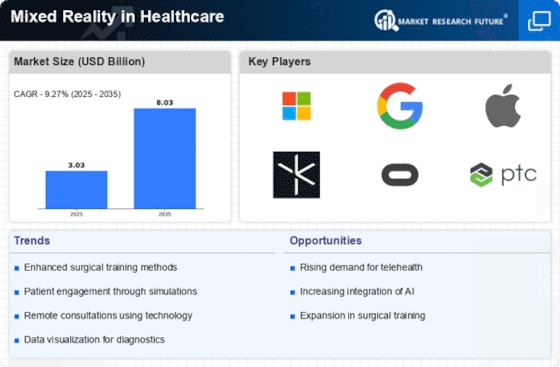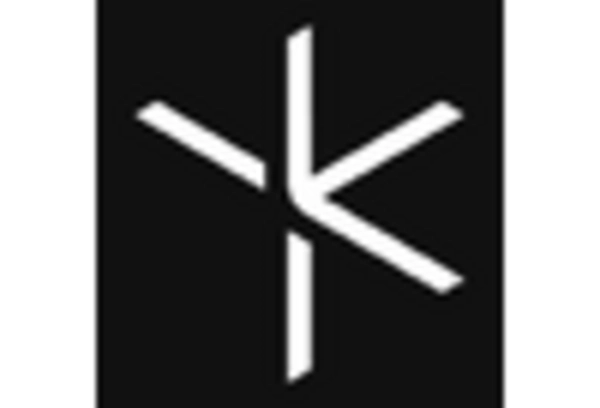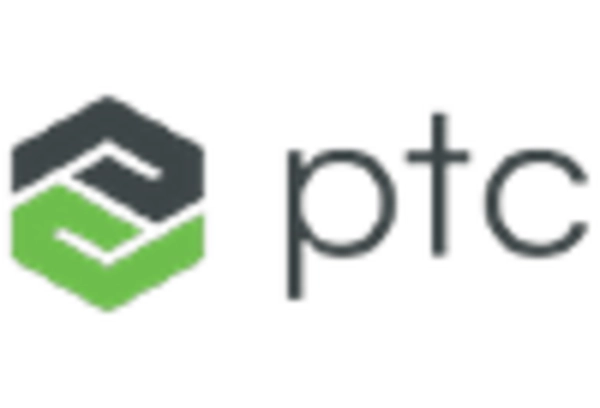Data-Driven Decision Making
The Mixed Reality in Healthcare is increasingly leveraging data analytics to inform clinical decisions. By integrating mixed reality with big data, healthcare professionals can visualize complex datasets in a more intuitive manner. This capability allows for enhanced diagnostic accuracy and personalized treatment plans. For instance, mixed reality tools can help clinicians analyze patient data alongside 3D models of anatomy, leading to more informed decisions. As healthcare systems continue to prioritize data-driven approaches, the integration of mixed reality technologies is expected to play a pivotal role in improving patient outcomes and operational efficiency.
Enhanced Surgical Precision
The Mixed Reality in Healthcare is witnessing a surge in the adoption of augmented reality (AR) and virtual reality (VR) technologies to enhance surgical precision. Surgeons are increasingly utilizing mixed reality systems to overlay critical information directly onto their field of view during procedures. This integration allows for improved visualization of anatomical structures, potentially reducing the risk of complications. According to recent data, the use of mixed reality in surgical settings has been shown to decrease operation times by up to 30 percent, thereby increasing efficiency. As the technology continues to evolve, it is likely that more healthcare facilities will invest in mixed reality solutions to improve surgical outcomes and patient safety.
Improved Patient Monitoring
The Mixed Reality in Healthcare is enhancing patient monitoring through innovative technologies that allow for real-time data visualization. Mixed reality applications can display vital signs and other health metrics in an interactive format, enabling healthcare providers to monitor patients more effectively. This capability is particularly beneficial in critical care settings, where timely interventions can be life-saving. Recent studies suggest that the implementation of mixed reality monitoring systems can lead to a 15 percent reduction in adverse events. As the demand for efficient patient management solutions grows, the adoption of mixed reality technologies is expected to increase, potentially transforming how healthcare providers deliver care.
Streamlined Medical Education
The Mixed Reality in Healthcare is revolutionizing medical education by providing immersive learning experiences for students and professionals. Mixed reality platforms enable learners to interact with 3D anatomical models and practice procedures in a risk-free environment. This hands-on approach enhances understanding and retention of complex medical concepts. Studies have shown that students trained using mixed reality techniques perform better in practical assessments compared to those who rely solely on traditional methods. As educational institutions recognize the advantages of mixed reality, the integration of these technologies into curricula is likely to expand, fostering a new generation of skilled healthcare professionals.
Revolutionizing Rehabilitation
The Mixed Reality in Healthcare is transforming rehabilitation practices through immersive therapy experiences. Mixed reality applications are being developed to create engaging environments for patients recovering from injuries or surgeries. These applications can simulate real-world scenarios, allowing patients to practice movements in a safe and controlled setting. Research indicates that patients using mixed reality rehabilitation programs show a 20 percent faster recovery rate compared to traditional methods. This trend suggests that as healthcare providers recognize the benefits of mixed reality, the demand for such innovative rehabilitation solutions will continue to grow, potentially reshaping the landscape of physical therapy.

















Leave a Comment